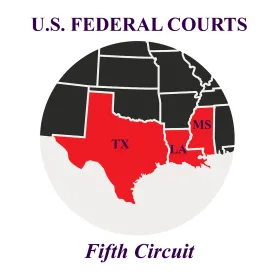On October 19, the Fifth Circuit Court of Appeals vacated the Consumer Financial Protection Bureau’s (CFPB) 2017 Payday Lending Rule. Although the holding is narrow, its rationale suggests—at least according to one court—that the CFPB cannot constitutionally act. Despite agreeing that the CFPB was within its power to make the Rule, the Fifth Circuit determined that the CFPB “lacked the wherewithal to exercise that power via constitutionally appointed funds.” Cmty. Fin. Servs. Ass’n of Am., Ltd. v. CFPB, No. 21-50826, 2022 WL 11054082 (5th Cir. Oct. 19, 2022).
Congress created the CFPB within the Federal Reserve System in response to the 2008 financial crisis. The CFPB has broad power to implement and enforce financial consumer protection laws, with the Supreme Court describing the CFPB as a “mini-legislature, prosecutor and court….” Seila Law LLC v. CFPB, 140 S. Ct. 2183, 2202 n.8 (2020). See generally Consumer Financial Protection Act, 12 U.S.C. §§ 5301-5641 (the Act).
According to the Fifth Circuit, the CFPB has a “funding scheme…unique across the myriad independent executive agencies across the federal government.” Cmty. Fin. Servs., 2022 WL 11054082, at *2. Rather than being funded through Congressional appropriations, the CFPB is funded directly from the Federal Reserve through a requisition process. The Federal Reserve, in turn, is funded through bank assessments. The CFPB’s funding is thereby “not…subject to review by the Committees on Appropriations” of the House or Senate. Id. at *15 (quoting 12 U.S.C. § 5497(a)(2)(c)).
The plaintiffs sued the CFPB in 2018, arguing that the Payday Lending Rule is unconstitutional. The Rule bars lenders from making more than two unsuccessful attempts at drawing on an account using preauthorized access to pay a consumer loan. The District Court sided with the CFPB and upheld the Rule.
On appeal, the Fifth Circuit agreed that the CFPB had the power to determine certain payday loan practices were “abusive” and “unfair.” The court held, however, that the Rule violated the Appropriations Clause, which is a “straightforward and explicit command [that] ensures Congress’ exclusive power over the federal purse.” Id. at *13. It characterized the CFPB’s funding as a “self-actualizing, perpetual funding mechanism,” and concluded that Congress had impermissibly relinquished its constitutional authority to appropriate money and review expenditures. Id. at * 14. As a result, the CFPB is “no longer dependent and, as a result, no longer accountable to Congress and, ultimately, to the people.” Id. at 15.
Many other Executive agencies, including the Federal Reserve, FDIC, and the Office of the Comptroller of Currency are likewise self-funded. The Fifth Circuit distinguished those agencies because the CFPB’s funding is beyond Congressional review, and the CFPB has powers not “remotely comparable” to the other agencies. Id. at *17.
Ultimately, although concluding that the CFPB had the authority to make the Rule, the Fifth Circuit vacated the Rule because the CFPB improperly used “unappropriated funds to engage in the rulemaking at issue.” Id. at * 18.
The CFPB has endured its share of legal challenges, with the Supreme Court recently finding that unconstitutional statutory limitations on the President’s ability to remove the CFPB’s Director could be severed from the Act, thereby saving the CFPB. Seila Law, 140 S. Ct. at 2207-11. The Fifth Circuit’s limited holding opens the door to challenge other CFPB actions on the basis that they likewise violate the Appropriations Clause, meaning that Seila Law may prove but a temporary respite before the Act makes its way once again to the Supreme Court.





 />i
/>i
